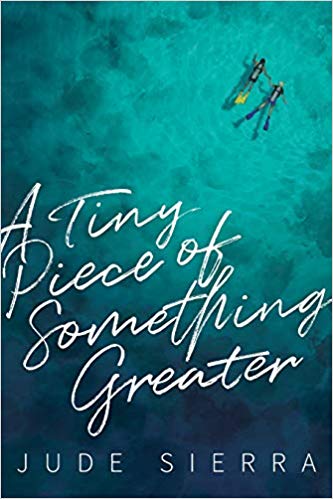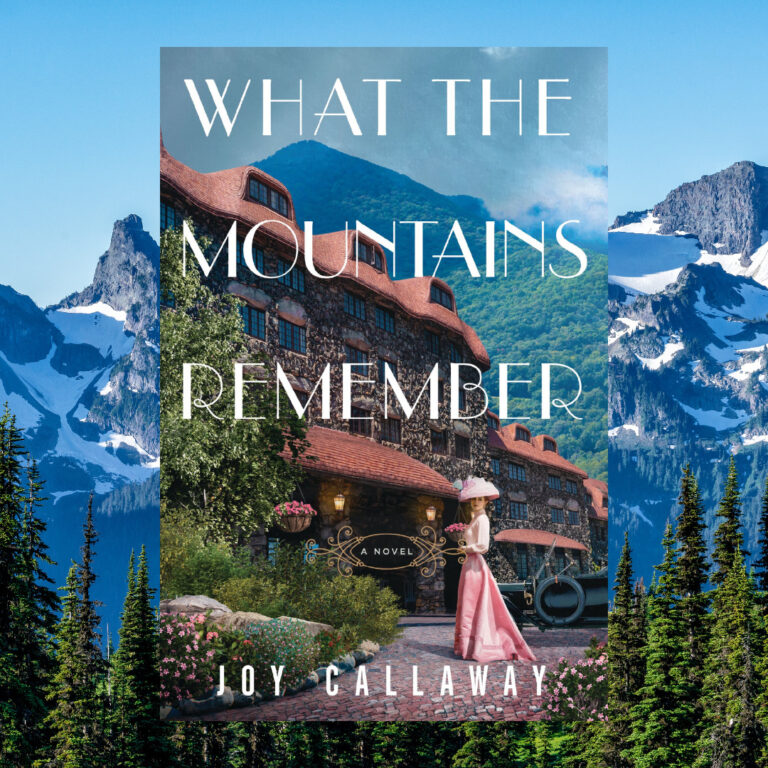I’ve written about recovery, resilience, and healing from the moment I sat down to write my first (unpublished) novel. Whether my characters are working through grief, broken relationships, trauma, mental illness, I’ve always been drawn to stories that explore what it’s like for people to learn to move from a space of surviving to thriving.
A Tiny Piece of Something Greater, my most recent novel, is by far the most personal book I’ve written, with some of the hardest subject matter to confront and work through. I have always wanted to write a story that reflected my own journey with mental illness, and what it took to fight for my life, for my happiness, for the really amazing life I’ve made for myself. With this book, I was able to tell this story through Reid, a boy in a transitional moment in his life, coming through and out of the other side of a very dark time.
I wrote this book the way I did because I have always longed to see accurate representations of characters with mental illness in media. Mental illness has been a part of my life since I was a teenager. I kept my struggles a secret for a long time; I lived in a dangerous space where what I was going through seemed shameful and like a weakness. I gravitated toward stories with characters who were struggling like I was.
I’m cyclothemic. I suffer from PTSD and struggle with anxiety. My mental illness is no longer a secret. I’m not ashamed of it. I do my very best to be open and honest about it. I know that mental illness carries social stigma with it. The only way I can think to counteract that stigma is to take moments to speak of my struggles, and importantly, my successes. Despite everything else, I want people to know that I am both thriving in my life and also mentally ill.
Being outspoken doesn’t mean that I’m unafraid. That I don’t always have to take a breath and buckle down and really mine my spirit for bravery, knowing that some people will judge me. A lot of that judgement comes from what people have learned about mental illness from what they have seen or read in books and television.
The desire to see myself in books, TV or movies has never gone away and I don’t think it should. The longing to see characters living with mental illness, represented accurately, has never left me. Those representations matter a great deal—I can’t stress how much—for those who live with mental illness and for those who don’t.
What I mean is this: mental illness isn’t a plot device. Treated as such, representation can range from hurtful to downright harmful. Television and movie portrayal of mental illness often functions as a shortcut device to create a backstory for a villain or an unreliable character. The social stigma surrounding mental illnesses such a schizophrenia, PTSD or bipolar disorder often come from wildly inaccurate portrayals in media. What’s most tragic is that these representations contribute to a cultural memory and a circular cycle of misrepresentation. Representation easily becomes belief, which perpetuates representation.
I can’t tell you how many books I’ve read where the main character was on some form of anti-depressant or psychotropic medication for a mood disorder but stopped taking it because it “made them feel numb” or “like a zombie”: some permutation of that phrasing. Often these characters are “healed” or manage to “get over” their struggle through the power of love or friendship or renewed purpose in life from saving the world. But as a teen and young adult, what always stuck with me when reading these books was a sense of helplessness. Why couldn’t I just get over it? Why couldn’t I overcome my struggles through sheer willpower? These narratives made me feel weaker and then compounded my shame over that feeling of weakness. For years these narratives kept me from seeking medical treatment because I thought all medications for mental illness would make me feel numb, or diminish any of the remaining pleasures I could find in life.
I’m not a doctor so I don’t want to speak to anyone else’s relationship with medication, choices regarding taking or choosing not to, because these are not my truths and no one’s story is monolithic. I can speak to my own journey with wellness, which did involve trial, error, and conversations with my doctor. Everybody’s body chemistry is different and medications will have different side effects. My doctor always told me: if this medication doesn’t work, we’ll try another. This means it isn’t right for you. With her encouragement, I never gave up hope.
It’s that never giving up hope, believing in both surviving and thriving that keeps me going and encourages me to speak. Reid’s story is difficult. Like me, Reid will live with mental illness his entire life. But even in his mental illness, in his dark moments, Reid refuses to give up. Reid’s mental illness and struggle aren’t a plot device used to get him and Joaquim to their happily ever after. His story in A Tiny Piece of Something Greater is about him reaching for and learning to thrive. Yes, his love story is a large part of the book, but that love doesn’t cure him. It enhances his life, it gives him yet another positive, beautiful thing to root for.
A Tiny Piece of Something Greater is meant to reflect what living with mental illness looks like for some. It’s meant to talk about it honestly, and it’s meant to look at what it means to navigate life as a young adult and with another person. Despite the difficulty, I hope that this book leaves readers with hope, and love, and an honest, positive reflection of life with mental illness.













